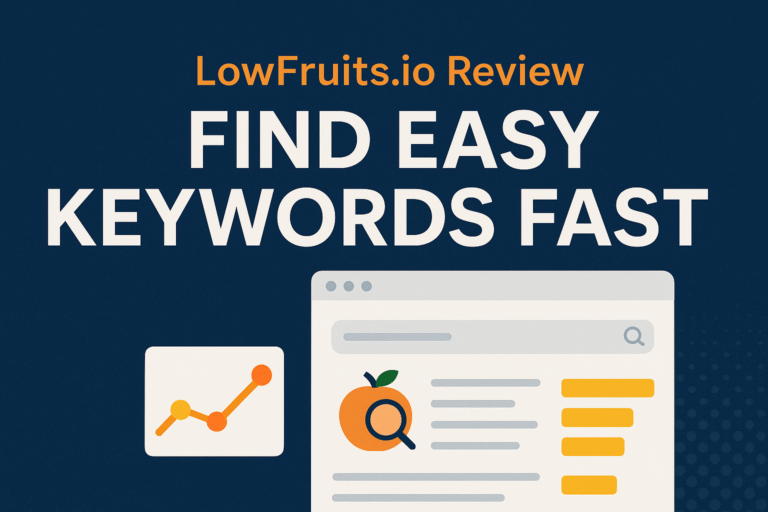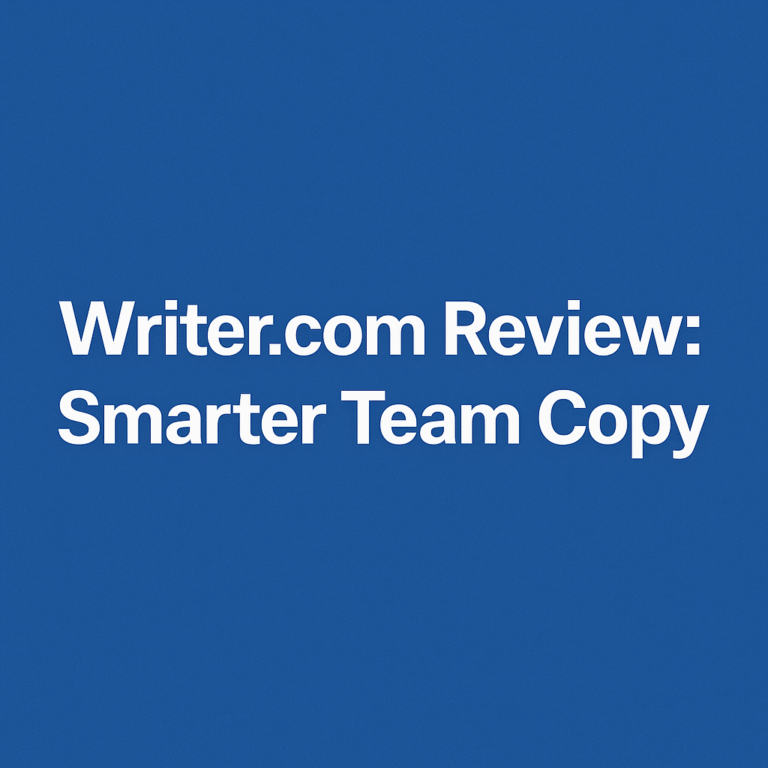
Best Notion Alternatives for Teams That Truly Work in 2025
If you’ve ever tried managing your team’s projects, docs, and tasks all in one place and hit a wall with Notion, you’re not alone. The flexibility of Notion is both a gift and a curse—especially for growing teams. That’s why more businesses are actively looking for the Best Notion Alternatives for Teams that are intuitive, scalable, and built for collaboration.
The good news? The landscape is ripe with tools that simplify workflows without compromising creativity. Let’s explore the game-changers that could replace (or even outperform) Notion for your team.
Introduction to Team Collaboration in 2025
Team dynamics have shifted drastically over the past few years. Hybrid work is the new normal, and tools that once worked for solo creators are now struggling to serve teams of 10, 100, or even 1000. Collaboration isn’t just about real-time editing anymore—it’s about speed, clarity, integrations, and scalability.
This article doesn’t just throw names at you. It dives into real-world performance, honest comparisons, and practical insights so your team picks not just any tool—but the right one.
Best Notion Alternatives for Teams
When talking about the Best Notion Alternatives for Teams, we aren’t looking for clones. We’re spotlighting platforms that outperform Notion in specific team environments—whether it’s project planning, task management, or advanced integrations.
Here’s what sets a great alternative apart:
- Intuitive design that reduces onboarding time
- Built-in team communication tools
- Visual project tracking options like Gantt and Kanban
- Permission settings and roles for security
- Seamless integrations with Slack, Google Workspace, and more
These features form the foundation of tools like ClickUp, Monday.com, Asana, and others we’ll uncover shortly.
Understanding Why Teams Look Beyond Notion
Let’s face it—Notion is powerful, but not perfect for everyone. Many teams experience:
- Slower load times as databases grow
- Lack of native Gantt charts or workload views
- Complex setups that require advanced training
- Minimal offline functionality
- Limited automation features
While Notion’s versatility is great, it often comes at the cost of speed, structure, or ease-of-use. Teams handling multi-phase projects, large client lists, or collaborative documentation often feel boxed in.
What Makes a Team Productivity Tool Stand Out?
To truly support a fast-moving team, a productivity platform must offer:
- Task visibility at every level: individual, team, department
- Clear communication channels without app-hopping
- Strong automations to reduce repetitive work
- Real-time updates and notifications
- Scalability from 5 to 500+ users
All the Best Notion Alternatives for Teams we review below have these baked in.
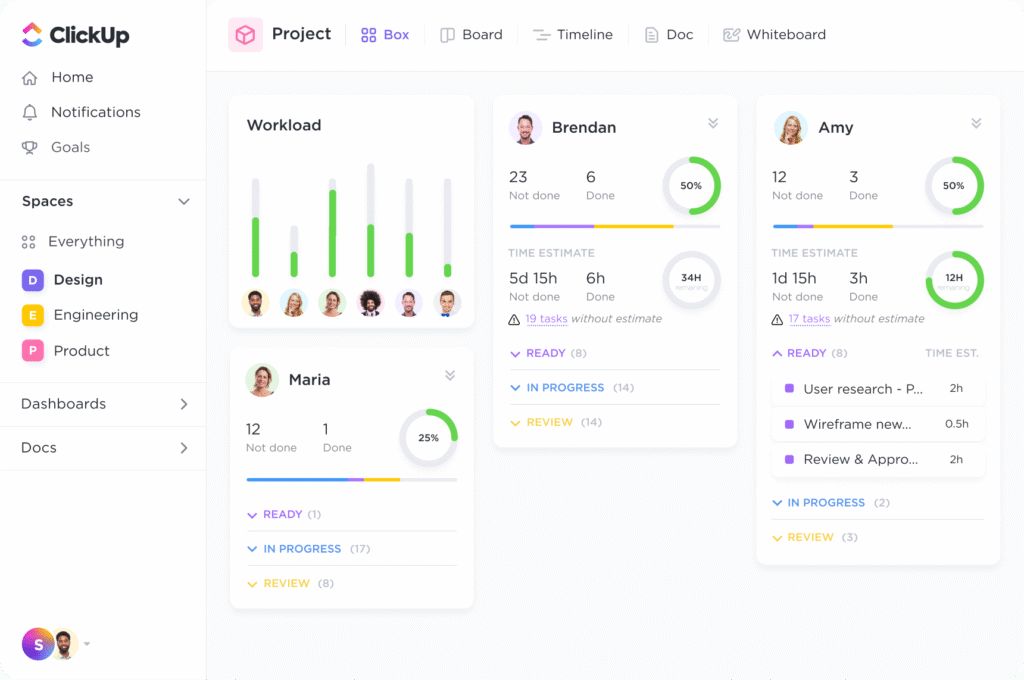
ClickUp: A Powerhouse of Productivity
ClickUp isn’t just a Notion alternative—it’s a project management beast. From docs to dashboards, ClickUp does it all with drag-and-drop simplicity.
Top Features for Teams:
- Custom statuses and workflows
- Multiple project views (Gantt, List, Kanban, Timeline)
- Built-in docs, goals, time tracking
- Automation without coding
- Whiteboards for brainstorming
ClickUp vs. Notion:
Where Notion shines in doc creation, ClickUp dominates in task management. It also handles complex dependencies and has better permission control for team roles.
Potential Downsides:
Some users find ClickUp’s extensive features overwhelming at first. But with proper onboarding, that challenge quickly fades.
Monday.com: The Visual Work OS for Teams
Think of Monday.com as Notion’s visual cousin. It simplifies team planning through colorful boards, timelines, and widgets.
Why Teams Love It:
- Gorgeous visual dashboards
- Pre-built templates for marketing, CRM, and dev teams
- Easy integrations with over 40+ tools
- Strong automation features
Standout Feature:
Its intuitive layout lets even non-techies set up workflows without breaking a sweat.
When It Beats Notion:
For medium to large teams that need transparency across departments.
Asana: Precision Meets Simplicity
Asana blends precision with simplicity. It’s a favorite among creative and product teams that value visual clarity.
What Makes It Unique:
- Timeline view to manage deadlines
- Task dependencies and workload tracking
- Team goals and OKR alignment
- Rule-based automations
Notion vs. Asana:
While Notion excels in knowledge management, Asana’s laser focus on tasks, deadlines, and responsibilities makes it ideal for execution-heavy teams.
Trello: Lightweight Yet Capable
Trello is known for its drag-and-drop Kanban boards. It’s perfect for teams that want minimalism and clarity.
Great For:
- Startups and small teams
- Content calendars and sprint planning
- Fast-moving workflows
Power-Ups Make It Competitive:
With Trello’s Power-Ups, you can add calendar views, integrations, and time tracking—making it much more than just sticky notes.
Versus Notion:
While Notion can feel heavy, Trello is lean and fast.
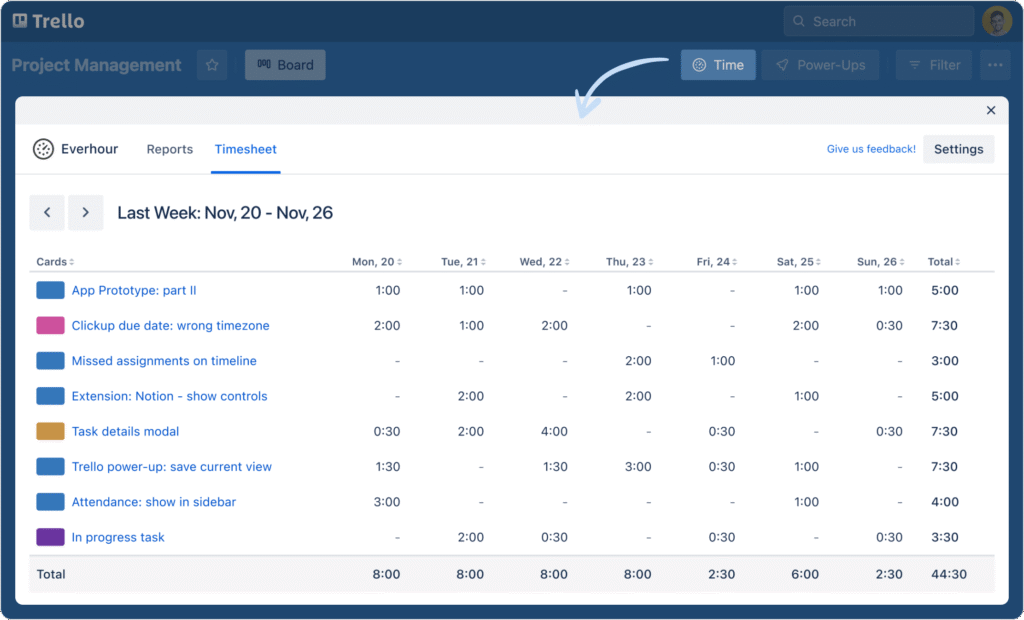
Microsoft Teams: The Collaboration Powerhouse
More than a video conferencing tool, Microsoft Teams is a collaboration hub. It combines chats, file storage, shared tasks, and meetings in one place.
Why Teams Switch to It:
- Deep Office 365 integration
- Shared team calendars and channels
- Co-authoring on Word/Excel files in real time
- Planner and To Do integration
Notion Can’t Compete On:
Video meetings and native communication features. If your team lives in Office, this might be the only tool you need.
Airtable: Databases Meet Design
Airtable takes databases and makes them beautiful—and highly collaborative.
Top Features:
- Spreadsheet-style data views
- Customizable templates
- Rich field types (checkboxes, attachments, barcodes)
- Interfaces for dashboard-like experiences
Why Airtable Over Notion:
If your team juggles a lot of structured data—think editorial calendars or CRMs—Airtable handles it with ease.
Notion vs. Obsidian for Internal Knowledge Sharing
Obsidian focuses on markdown notes and personal knowledge bases, but when extended via community plugins, it can serve team needs well.
When It Works:
- Smaller technical teams
- Wiki-style internal documentation
- Offline access
Not For:
Highly visual teams or those that need heavy task management.
Coda: The Document That Acts Like an App
Coda lets you create docs that function like apps. Buttons, automations, and modular building blocks make it a developer’s delight.
Key Features:
- Interactive tables and formulas
- Pack integrations (e.g., Slack, Jira)
- Page-level permissions
- Collaborative editing
Coda vs. Notion:
Coda takes the doc format and supercharges it. While Notion organizes, Coda empowers.
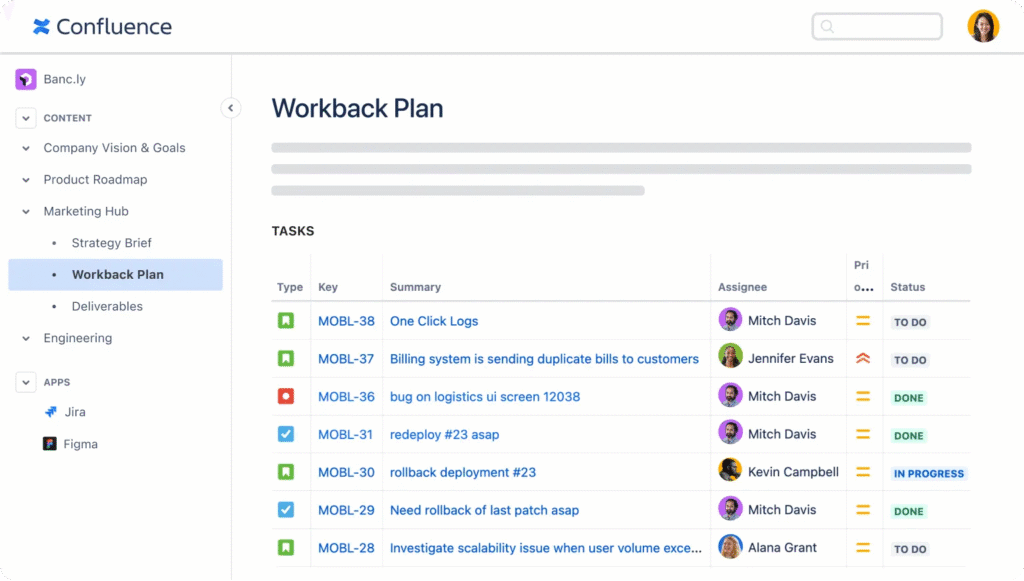
Confluence: Enterprise-Grade Documentation
Developed by Atlassian, Confluence is a robust knowledge base tool, especially suited for technical and enterprise teams.
Ideal For:
- Software development documentation
- Internal company wikis
- Jira integration
Strength Over Notion:
More structured, scalable, and suited for larger documentation projects.
Freedcamp, Nifty, Zoho Projects & Others Worth a Mention
There’s a growing list of tools designed to compete with or complement Notion:
| Tool | Strength | Ideal Use Case |
|---|---|---|
| Freedcamp | Budget-friendly & simple | Startups |
| Nifty | Unified chat + tasks | Marketing & remote teams |
| Zoho Projects | Ecosystem of tools | Enterprise use |
| Basecamp | Minimalist with built-in comms | Remote-first teams |
FAQs
What are the best Notion alternatives for large teams?
ClickUp, Monday.com, and Microsoft Teams are best suited for large organizations due to scalability, role management, and integration options.
Is Notion good for managing team tasks?
Notion can manage basic tasks, but lacks advanced features like task dependencies, workload charts, and automation—essential for many teams.
Can I use Airtable like Notion?
Yes, but Airtable focuses more on databases than docs. If your workflow is data-heavy, Airtable can outperform Notion.
Which Notion alternative is best for creatives?
Asana and Trello are both excellent for creatives thanks to their visual interface, timelines, and integrations with design tools.
Are there free alternatives to Notion for teams?
Yes! Tools like Trello, ClickUp (Free Forever Plan), and Freedcamp offer generous free tiers with collaborative features.
What tool is best for knowledge management like Notion?
Confluence, Obsidian, and Coda offer robust documentation capabilities that rival or exceed Notion in structured knowledge management.
Conclusion: Choosing What Works for Your Team
Not every team needs the same features—and that’s the beauty of competition. Whether you’re after visual clarity, structured databases, high-powered task management, or simple wikis, there’s a Notion alternative built with your workflow in mind.
The Best Notion Alternatives for Teams aren’t just replacements—they’re upgrades tailored to your evolving business needs. Try a few, run real-life test projects, and watch your team’s productivity thrive.
